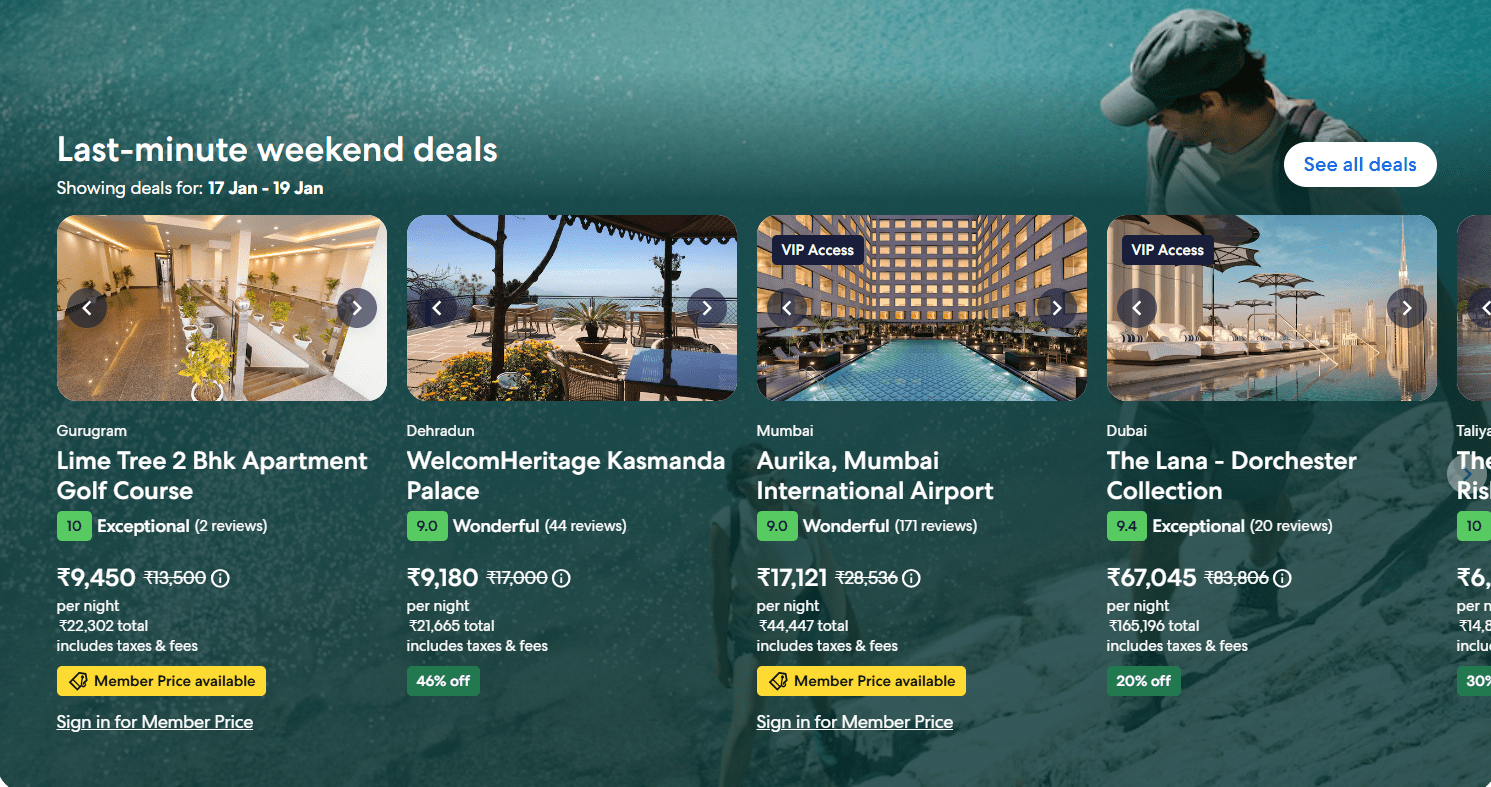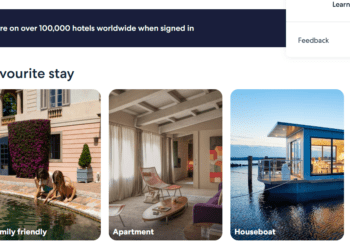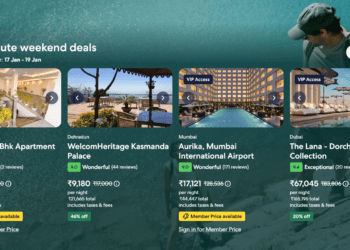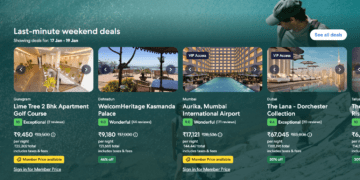In an increasingly digital and dynamic travel industry, companies like Expedia are redefining the way we explore the world. With travel bouncing back after years of disruption, and technology accelerating at breakneck speed, the future of travel booking is set to look very different from the present. Expedia, a global online travel leader, is well-positioned to shape this transformation.
But what exactly does the future hold for Expedia? From artificial intelligence and personalized experiences to sustainability and super apps, the next frontier for Expedia is as exciting as it is competitive.
A Brief Look at Expedia’s Evolution
Founded in 1996 as a division of Microsoft, Expedia quickly became one of the first online travel agencies (OTAs) to challenge the traditional model of booking travel through brick-and-mortar agencies. Over the years, it evolved into a full-service platform, offering flights, hotels, car rentals, vacation packages, and more. Expedia Group now owns and operates a family of well-known travel brands, including Hotels.com, Vrbo, Orbitz, Travelocity, and Hotwire.
However, Expedia hasn’t always had a smooth ride. The pandemic tested its resilience, pushing the company to rethink its strategy. Under CEO Peter Kern, Expedia has embarked on a multi-year transformation aimed at streamlining its brands, rebuilding its tech stack, and becoming a more user-centric platform.
So, what’s next?
1. Unified Platform Experience
Expedia’s most immediate future lies in platform unification. Historically, Expedia Group’s portfolio of brands operated on different systems, creating inefficiencies and inconsistent user experiences. Over the last couple of years, the company has been working toward consolidating these disparate platforms into one unified technology infrastructure.
This means that whether you book through Expedia, Hotels.com, or Travelocity, you’ll soon benefit from the same back-end features: better search algorithms, more relevant recommendations, and a seamless experience across devices.
A unified platform also allows Expedia to roll out new features more quickly and gather insights from customer behavior across all brands, enabling deeper personalization and faster product iteration.
2. Hyper-Personalization Powered by AI
Artificial intelligence is changing the way we interact with travel platforms. In the future, Expedia’s booking engine won’t just show a list of flights or hotels — it will act like a digital travel assistant that knows your preferences, anticipates your needs, and customizes your entire itinerary.
Expedia has already begun integrating AI into various aspects of its service, from chatbots for customer service to machine learning algorithms that optimize search results. But the next phase will go even deeper.
Imagine logging into Expedia and receiving a personalized travel dashboard: destination suggestions based on your past trips, budget ranges, preferred hotel chains, loyalty points, weather preferences, and even real-time flight deals from your home airport. AI will allow Expedia to provide more relevant options faster, saving time and reducing decision fatigue for travelers.
As large language models (LLMs) and generative AI continue to improve, Expedia may also integrate these tools into conversational trip planning — turning your questions into curated travel plans with minimal effort.
3. The Rise of the Super App
Super apps are already a major trend in Asia, combining services like messaging, payments, e-commerce, and travel in one platform. While Western markets have been slower to adopt this model, Expedia could be laying the groundwork to become a “super app” of travel.
By integrating flights, accommodations, activities, travel insurance, dining reservations, loyalty programs, and even transportation like rideshares or rental bikes, Expedia could become a one-stop shop for all things travel-related.
This consolidation isn’t just convenient for travelers — it’s also a strategic move. A super app increases customer stickiness, drives loyalty, and creates multiple revenue streams. The more a traveler relies on Expedia for different stages of their journey, the less likely they are to shop around or use competitors like Booking.com, Google Travel, or Airbnb.
4. Enhanced Loyalty Programs
Expedia is also investing heavily in its loyalty program. In 2022, the company launched One Key, a unified rewards system across Expedia, Hotels.com, and Vrbo. This move reflects a broader trend in the travel industry: enhancing customer retention by offering flexible and valuable loyalty perks.
One Key allows users to earn and redeem points across multiple brands, which is especially appealing for frequent travelers who prefer variety. But future iterations of loyalty programs will go further. Expect more personalized rewards based on individual behaviors, dynamic pricing for loyalty members, and even NFTs or blockchain-based tokens to store and trade travel benefits.
Expedia is betting big on loyalty, and as it improves the integration of data and personalization, we may see loyalty shift from a point-based system to a full-fledged lifestyle ecosystem — with VIP perks, tailored experiences, and exclusive access.
5. Sustainability and Conscious Travel
The next generation of travelers cares deeply about sustainability. As climate change becomes a top concern and travel’s environmental impact gains attention, Expedia is under pressure to provide more eco-conscious options.
While Expedia currently offers filters for eco-certified hotels and carbon emissions tracking for flights, it still lags behind platforms like Google Flights in transparent, user-friendly sustainability tools. However, the company has signaled its intent to prioritize green travel going forward.
In the near future, expect Expedia to:
- Highlight lower-emission flight options.
- Partner with sustainable hotel chains and destinations.
- Offer carbon offset tools at checkout.
- Educate travelers on the impact of their travel choices.
- Include sustainability scores in hotel and activity listings.
Eco-friendly travel isn’t just a moral imperative — it’s also a branding and business opportunity. Travelers who prioritize sustainability are willing to pay more for conscious choices, and Expedia can use this to stand out in a crowded OTA landscape.

6. Deeper Integration with Work-from-Anywhere Culture
Remote and hybrid work has fundamentally changed travel patterns. Instead of just vacations, people are booking “workcations,” digital nomad stints, and extended stays in new cities.
Expedia has already begun to tap into this trend by promoting longer stays and flexible booking options through platforms like Vrbo. But going forward, the company could expand its offering by:
- Partnering with co-working spaces.
- Creating bundles for long-term rentals with fast Wi-Fi.
- Suggesting destinations optimized for remote work (think time zones, internet speed, and visa options).
- Offering tools for companies that support distributed teams and work retreats.
The line between business and leisure travel is blurring, and Expedia is well-positioned to meet the needs of the modern, mobile worker.
7. Strategic Partnerships and Vertical Integration
Expedia’s future may also depend on smart partnerships. The company has already partnered with airlines, hotels, financial institutions, and even tech firms like Microsoft (to integrate travel tools into Teams). These collaborations expand Expedia’s reach and improve user experience.
Looking ahead, vertical integration could be on the table. For example, Expedia could invest more directly in hotel properties, launch branded travel credit cards, or offer in-house insurance and concierge services. These moves would not only diversify revenue but also help Expedia control more of the travel journey.
8. Competition and the Google Threat
Of course, no discussion of Expedia’s future would be complete without considering the competitive landscape.
Google Travel continues to grow as a powerful meta-search platform, allowing users to search flights and hotels directly within the Google ecosystem — sometimes bypassing OTAs like Expedia entirely. Airbnb is also expanding into curated travel experiences and could become a bigger threat if it adds flights or packages in the future.
Expedia must double down on what sets it apart: the convenience of bundling, strong loyalty rewards, and a comprehensive user experience. Continued investment in customer service, transparency, and mobile usability will be crucial.
Final Thoughts: Reinventing the Travel Experience
The future of travel booking is far more than just clicking buttons — it’s about crafting experiences. Expedia’s ability to adapt to the evolving landscape will determine whether it remains a dominant player or gets outpaced by newer, nimbler competitors.
With its renewed focus on technology, personalization, and user value, Expedia has the foundation to become a next-gen travel platform — one that doesn’t just help you book a trip but guides you through every step of the journey.
Whether it’s through a super app, AI-powered concierge, or sustainable travel hub, Expedia’s path forward is full of possibility. The only question left is: where will they take us next?






















